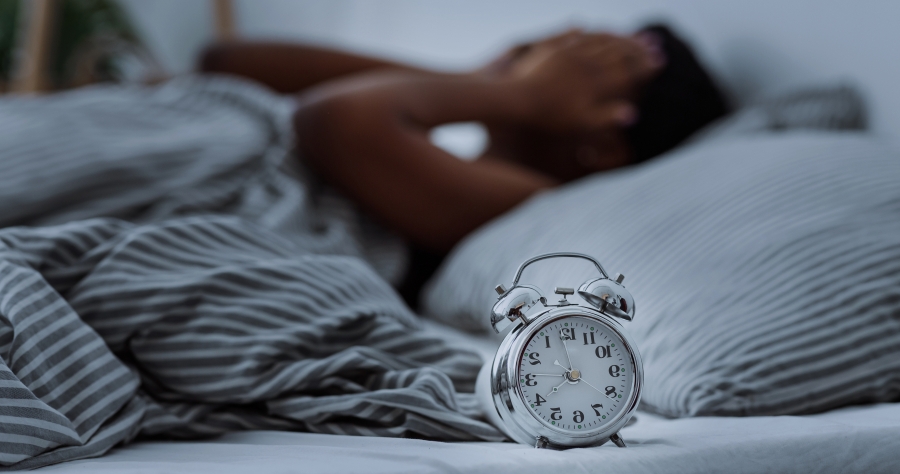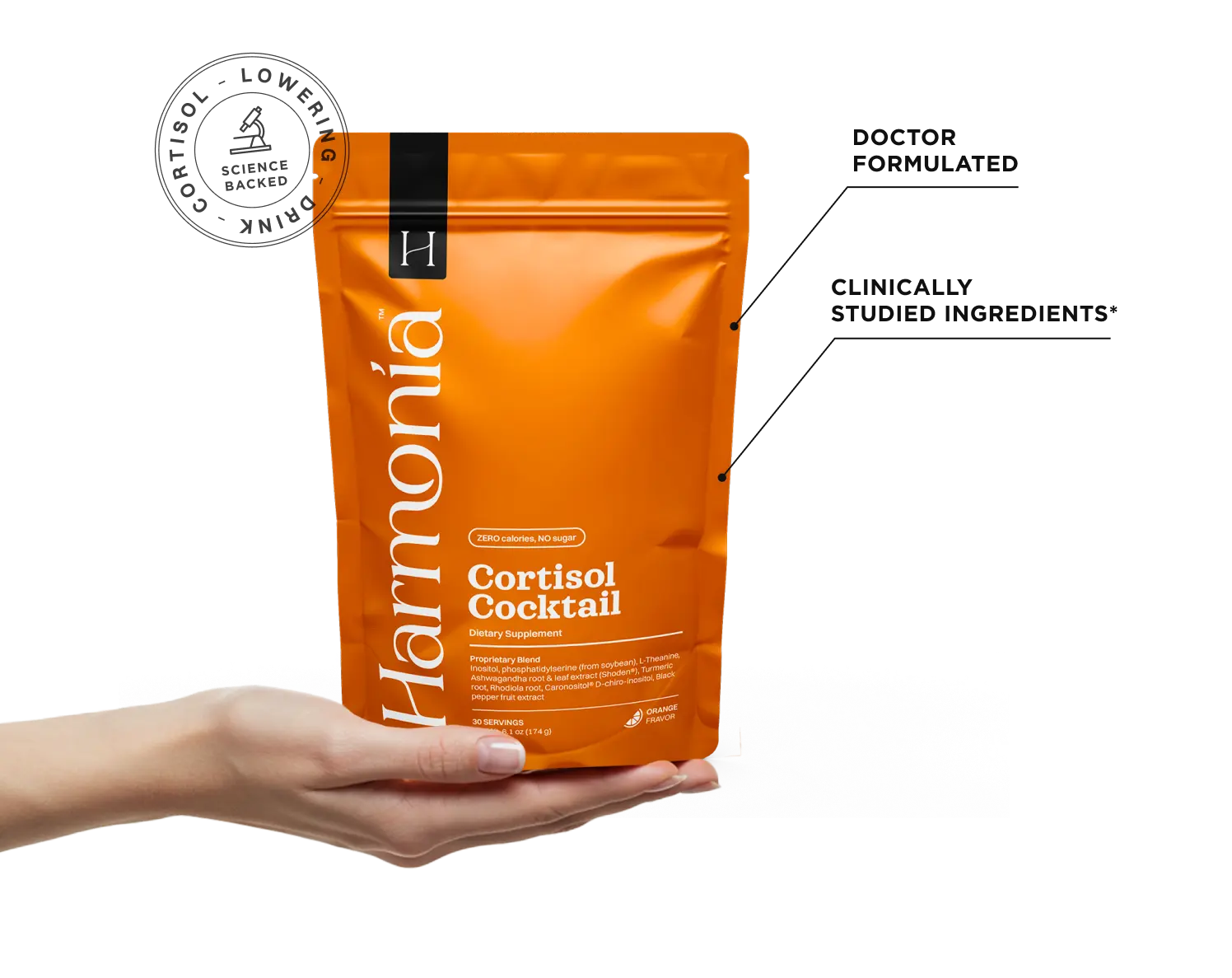Sleep is one of the most vital components of human health, yet it is also one of the first things to suffer when stress levels rise. At the center of this relationship between stress and sleep is cortisol, often called the “stress hormone.”
While cortisol is essential for energy and survival, it can also be a double-edged sword when levels rise or fall at the wrong times. Many people struggle with restless nights, early morning awakenings, or full-blown insomnia without realizing that an imbalance in cortisol might be playing a role.
This article explores how cortisol affects sleep, why levels fluctuate throughout the day, the connection between cortisol and conditions like sleep apnea or sleep deprivation, and practical remedies to help restore balance.
What is Cortisol?
Cortisol is a hormone produced by your adrenal glands, two small glands that sit on top of your kidneys. It is best known as the body’s primary stress hormone, but its role goes far beyond stress response. Cortisol helps regulate:
- Energy and metabolism: It ensures your body has enough glucose (sugar) for immediate energy use.
- Immune function: Cortisol has anti-inflammatory properties, but too much can weaken immunity.
- Blood pressure regulation: Helps maintain cardiovascular stability.
- Sleep-wake cycle: Plays a role in when you feel alert versus when you feel sleepy.
Normally, cortisol levels and sleep follow a predictable rhythm, called the circadian rhythm. Levels rise in the early morning hours to help you wake up and feel alert, then gradually decline throughout the day, reaching their lowest point at night so your body can rest. When this rhythm is disrupted, sleep quality often suffers.
Cortisol and the Sleep-Wake Cycle

The cortisol sleep-wake cycle is central to how your body manages energy and rest. Here’s how it typically works:
- Morning surge (Cortisol Awakening Response): Around 30-45 minutes after waking, cortisol peaks. This natural rise helps you feel energized, focused, and ready to face the day.
- Daytime regulation: Cortisol slowly declines during the day, supporting energy for work, concentration, and physical activity.
- Evening drop: As bedtime approaches, cortisol levels drop at night, allowing melatonin (the sleep hormone) to increase. This transition signals your body to relax and prepare for deep sleep.
When this cycle is balanced, your body experiences a smooth flow of energy in the morning and restful, restorative sleep at night.
However, if stress, poor diet, or irregular routines disrupt the natural cortisol rhythm, you may feel wide awake late at night and groggy in the morning. This misalignment creates a ripple effect across your overall health.
High Cortisol and Sleep Disruptions
Stress is one of the most common reasons people struggle with sleep. When you’re stressed, your body produces more cortisol to help you cope. But high cortisol levels at night can keep your brain in a state of hyper-alertness. Instead of winding down, you feel restless, your heart may race, and your mind won’t stop spinning.
High cortisol can interfere with:
- Falling asleep: The hormone’s stimulating effect can delay the onset of sleep, leading to insomnia.
- Staying asleep: Elevated cortisol may cause frequent awakenings, particularly in the early morning hours.
- Sleep quality: Even if you get enough hours in bed, high cortisol disrupts the deeper sleep stages, leaving you tired in the morning.
Many people describe this as feeling “wired but tired” - exhausted yet unable to relax. This is one of the hallmark signs of high cortisol at night. Left unchecked, this pattern of high cortisol and sleep disruption can contribute to chronic fatigue, irritability, and poor mental health.
Cortisol and Sleep Deprivation
Sleep and cortisol have a two-way relationship. While high cortisol can make it difficult to sleep, lack of sleep increases cortisol in return.
When you don’t get enough rest, your body perceives it as a form of stress. In response, your adrenal glands release more cortisol to keep you awake and functioning. This creates a vicious cycle:
- Step 1: You don’t sleep enough → cortisol spikes.
- Step 2: High cortisol makes it hard to relax and fall asleep the next night.
- Step 3: Sleep deprivation continues, causing even higher cortisol levels.
This cycle of sleep deprivation and cortisol imbalance can have far-reaching effects:
- Heightened anxiety and mood swings
- Reduced ability to concentrate and remember information
- Increased cravings for sugar and processed foods
- Weakened immune system
- Higher risk of weight gain, insulin resistance, and fatigue
Over time, this imbalance can become chronic, making it increasingly difficult to restore a healthy sleep-wake cycle without intentional lifestyle changes.
Cortisol and Sleep-Related Conditions
Beyond general sleep issues, cortisol has been linked to specific health problems that interfere with rest.
- Cortisol and sleep apnea: People with obstructive sleep apnea often show elevated cortisol due to repeated nighttime awakenings and oxygen deprivation. This further disrupts their rest, creating a harmful feedback loop.
- Insomnia and high cortisol: Persistent stress raises nighttime cortisol, keeping the nervous system activated and making it difficult to fall asleep or stay asleep.
- Chronic fatigue and high cortisol sleep disruption: Over time, the body may struggle to maintain proper cortisol balance, leading to fatigue, burnout, and poor overall sleep quality.
Understanding these connections highlights the importance of addressing cortisol imbalance not only for sleep but also for overall health and hormone balance.
Signs of High Cortisol at Night

Recognizing the warning signs of elevated cortisol levels can help you take action sooner. Common symptoms include:
- Trouble falling asleep despite feeling exhausted
- Waking up at 2-4 AM with a racing mind (cortisol spike at night)
- Restless or shallow sleep that leaves you tired in the morning
- Feeling anxious or irritable at night
- Hair falling out due to stress or cortisol imbalances
- Strong cravings for sugar, carbs, or salty foods in the evening
- Low libido and hormonal imbalance
If you consistently notice these patterns, it could be a sign that your cortisol levels at night are too high, disrupting your natural rhythm.
Practical Tips to Balance Cortisol for Better Sleep
Balancing cortisol doesn’t happen overnight, but small daily habits can make a big difference in restoring healthy sleep.
Support your circadian rhythm
- Get morning sunlight within the first hour of waking to signal your body clock.
- Limit screen time and blue light exposure in the evening to allow melatonin to rise naturally.
- Maintain consistent sleep and wake times, even on weekends.
Manage stress effectively
- Practice relaxation techniques such as meditation, deep breathing, or progressive muscle relaxation.
- Try yoga or tai chi, which help lower cortisol and anxiety.
- Journaling or gratitude exercises can shift your mindset and calm your nervous system.
Optimize exercise timing
- Morning or afternoon workouts can support the natural cortisol and sleep-wake cycle by promoting energy early and rest later.
- Intense workouts late at night may elevate cortisol levels and interfere with sleep.
Focus on nutrition
- Avoid caffeine and sugar in the evening to prevent unnecessary cortisol spikes at night.
- Stay hydrated throughout the day to reduce stress load on your body.
- Eat balanced meals with protein, healthy fats, and fiber to stabilize blood sugar, since swings in glucose can trigger cortisol release.
- Consider nutrient support: A drink like Harmonia Cortisol Cocktail provides L-theanine, magnesium, B vitamins, and adaptogens that work together to regulate cortisol and support overall hormonal balance—making it a simple complement to a balanced diet.
Create a calming bedtime routine
- Dim lights 1-2 hours before bed.
- Take a warm shower or bath to lower body temperature.
- Use calming practices such as reading, listening to soothing music, or sipping a caffeine-free herbal tea (tea for high cortisol, like chamomile or green tea, which may help reduce stress).
By consistently applying these strategies, you can help prevent cortisol spikes at night and support deeper, more restorative sleep.
Harmonia: Smart Cortisol Support for Better Sleep & Stress Balance

If high cortisol is keeping you awake at night, Harmonia provides a natural way to restore balance. This smart cortisol blend combines adaptogens, plant extracts, and essential nutrients that work in harmony to calm stress, support hormonal health, and encourage deeper rest.
By helping cortisol follow its natural rhythm, Harmonia makes it easier for your body to wind down in the evening and transition into restorative sleep.
Many women who use Harmonia report fewer nighttime awakenings, calmer moods, and more consistent energy throughout the day. With its refreshing orange flavor, zero calories, and plant-based formula, it’s a simple addition to your nightly routine that delivers noticeable results.
If you are ready to experience better sleep and more balance, take the Harmonia quiz today and discover how it can fit into your wellness journey.
References
- Elder, G. J., Wetherell, M. A., Barclay, N. L., & Ellis, J. G. (2014). The cortisol awakening response–applications and implications for sleep medicine. Sleep medicine reviews, 18(3), 215-224. Link.
- Nollet, M., Wisden, W., & Franks, N. P. (2020). Sleep deprivation and stress: a reciprocal relationship. Interface focus, 10(3), 20190092. Link.







